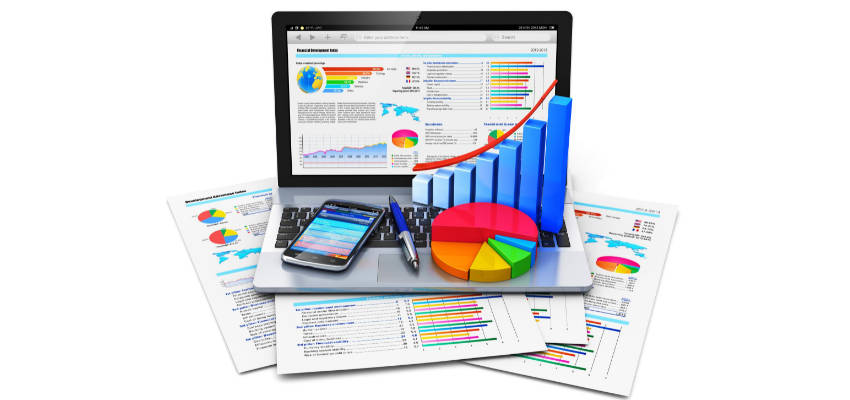Show:
Data Analytics trends to follow in 2025
In today’s digital age, data analytics is a cornerstone of business strategy and operational efficiency. As the volume of data generated by businesses continues to skyrocket, the ability to effectively analyze this data is becoming a critical determinant of market success. This pivotal role of analytics and data analysts in shaping business landscapes makes it essential for organizations to stay updated with emerging trends.

The year 2025 promises to bring forward advanced analytical techniques and technologies, driving businesses towards more predictive and automated operations. Recognizing and adapting to these trends will offer competitive advantages and open new avenues for innovation and growth.
Here’s what you need to know:
1. The Rise of Predictive Analytics
Predictive analytics is set to dominate the business intelligence landscape in 2025, offering unprecedented foresight into customer behaviors, market trends, and potential risks. This analytical method utilizes historical data patterns to forecast future outcomes, enabling businesses to make proactive decisions.
For instance, predictive analytics can anticipate purchase behaviors in retail, helping stores optimize their inventories and promotional strategies to meet anticipated demand. Similarly, these tools can predict patient risks and improve preventative care in healthcare. As predictive models become more refined, their integration into daily business operations will be pivotal for strategic planning and operational excellence.
2. Types of Analysts You Need to Succeed in the Modern Business Environment
As we look towards 2025, the data analytics landscape is set to become more dynamic, requiring new skills, technologies, and ethical considerations. Here are some key roles that are expected to expand in their responsibilities and may be in high demand:
- Computer and Information Systems Manager: This role oversees the strategic implementation of IT solutions that support data analytics frameworks.
- Management Analyst: Focuses on improving internal processes through rigorous data analysis.
- Information Scientist: Specializes in developing algorithms and data models that extract insights from vast data sets.
- Actuarial Analyst: From predicting financial risks to bridging the gap between technical data solutions and business operations, actuarial analysts cover a broad spectrum of essential functions that drive data-driven decision-making.
To harness the full potential of data analytics, businesses need to cultivate a team of diverse analytical experts who can interpret and implement data-driven strategies effectively. A Master’s in Data Analytics can help equip individuals with the sophisticated analytical skills required for these roles, emphasizing the importance of advanced education in this evolving field.
3. AI-driven Analytics Tools
Artificial intelligence is revolutionizing the field of data analytics by automating complex processes and enabling more accurate insights at a fraction of the previous time. AI-driven tools can process large datasets quickly, identify patterns, and even learn from outcomes to refine their algorithms.
In 2025, these tools are expected to become more ubiquitous, assisting analysts by providing deeper and faster insights. For example, AI can automatically detect anomalies in real-time data streams in cybersecurity, alerting teams to potential threats much quicker than traditional methods.

4. Privacy and Data Governance
As the reliance on data analytics grows, so does the concern for privacy and data governance. Businesses must navigate the complex landscape of regulatory requirements while harnessing the power of analytics. This trend is pushing companies to develop robust governance frameworks that comply with global data protection regulations like GDPR and build trust with consumers by safeguarding their personal information. Effective data governance ensures that data is used ethically and transparently, maintaining the integrity of business operations and customer relationships.
5. Cloud-based Analytics Solutions
The shift to cloud-based analytics is driven by the need for scalability, cost efficiency, and collaborative capability. Cloud platforms allow businesses to store and analyze massive amounts of data without investing in heavy infrastructure.
In 2025, more companies may adopt cloud services to perform complex analyses and generate insights that can be shared seamlessly across departments and geographical boundaries. This transition supports the growing data needs and aligns with the push towards remote working environments, making analytics accessible from anywhere and facilitating a more data-driven business model.
6. Real-time Data Analysis
The adoption of real-time data analysis is escalating across numerous sectors, enabling businesses to react instantly to market changes and customer interactions. This capability is particularly transformative in industries like finance and e-commerce, where conditions fluctuate rapidly, and the timing of decisions is crucial.
Real-time analytics allows companies to monitor and respond to customer activities at the moment, offering personalized experiences and optimizing operational decisions, such as stock management and pricing strategies. As we move into 2025, the technology supporting real-time data streams may become even more sophisticated, integrating seamlessly with IoT devices and mobile platforms to provide businesses with immediate insights.
The future of data analytics in 2025 is marked by significant advancements in technology and methodology. The landscape is rapidly evolving from real-time data analysis that enables instantaneous business decisions to quantum computing that promises breakthroughs in processing capabilities. Ethical considerations and industry-specific solutions will be crucial in shaping how businesses leverage big data to drive innovation and competitive advantage. As these trends unfold, the value of an advanced degree in data analytics becomes increasingly apparent, equipping professionals with the expertise to lead in this dynamic and technically complex environment. Embracing these trends will be essential for businesses aiming to thrive in a data-driven future.

 Return to Previous Page
Return to Previous Page








